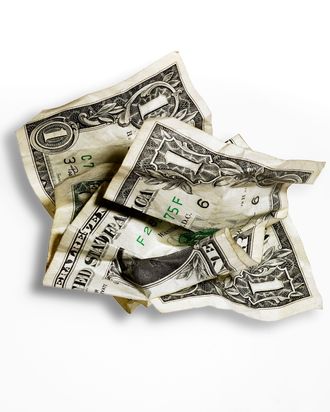
Tomorrow, New York city councilmember Ritchie J. Torres will formally introduce legislation that could ban so-called cashless businesses from operating in New York City. Like lawmakers in Philadelphia, Washington, D.C., and New Jersey, Torres, who represents the 15th Council District in the central Bronx, believes that cash-free establishments are discriminatory by design. If his bill is passed, any business that refuses to accept cash will face fines — a move that would impact the many cash-free restaurants, coffee shops, and cafés that have recently emerged across New York City. On the eve of announcing his bill, Grub Street talked to him about the racism and classism that he believes are at the heart of the so called “cashless revolution.”
How did you become aware of cash-free businesses?
I started coming across coffee shops and cafés that were exclusively cashless and I thought: But what if I was a low-income New Yorker who has no access to a card? I thought about it more and realized that even if a policy seems neutral in theory, it can be racially exclusionary in practice. Therein lies the problem with card-only policies. I see it as a way to gentrify the marketplace.
Paper money is a universal currency. We all use it at some point in our lives, and delegitimizing paper money with a card-only policy should be unlawful.
Why do you think cashless business models “gentrify the marketplace”?
On the surface, cashlessness seems benign, but when you reflect on it, the insidious racism that underlies a cashless business model becomes clear. In some ways, making a card a requirement for consumption is analogous to making identification a requirement for voting. The effect is the same: It disempowers communities of color.
These are public accommodations. The Civil Rights Act established a framework for prohibiting discrimination in matters of housing, employment, and public accommodations. If you’re intent on a cashless business model, it will have the effect of excluding lower-income communities of color from what should be an open and free market.
And we’ll start to attach a certain stigma to people who pay for things with cash?
Exactly, in the same way that one might stigmatize EBT cards. When I was growing up, I remember the embarrassment that surrounded the use of food stamps. We live in a society where it’s not enough to stigmatize poverty; we are also going to stigmatize the means with which poor people pay for goods and services.
So many food business owners justify a cashless model by saying that their customers all pay with cards, anyway, and that the only people who it impacts are tourists, or people who don’t like it on principal.
The claim that this policy had no real-world implications is irrelevant. The fact that you are foreclosing the possibility of a cash transaction is a problem. Say I ran a restaurant where my customer base was exclusively white. Does that mean I should adopt a policy where I prohibit black people or Latinos from patronizing it?
How likely do you think this law will come into effect?
We are a largely progressive City Council, so I’m optimistic, but opposition from the business community could be much more ferocious than I’m anticipating. The question is: How adamantly and aggressively will the business community oppose it? There are food and retail establishments that are deeply invested in the cashless business model and this will subvert their status quo.
How would it be enforced?
It would become the law of New York City and Consumer Affairs would have the authority to issue fines.
What did your constituents and colleagues think about cashlessness when you first raised it with them?
Part of the purpose of the bill is to educate people about the insidious racism of a cashless business model. It’s deceptively benign. But what we have happening is a creeping delegitimization of cash, and I worry about the racial ramifications of that.
What do you make of the claim, “But these days everyone has a card!”
People who say that are living in a bubble of privilege — they look around and all their friends have cards. In response I say, “Does it occur to you that your world is pretty unrepresentative?” There are hundreds and thousands of New Yorkers who may have no permanent address or home, and many New Yorkers who are underbanked, either because of poverty or because they lack documentation. Requiring a card is erecting a barrier for low-income New Yorkers — period — and it’s coming from the very communities that claim to be progressive, as if, “Well, I am all for racial justice just so long as it doesn’t come at the expense of my own privilege.”
I think that many of these places actively want to keep a certain type of person out.
Of course! Earlier I said that no matter what the intention was, its effect is discriminatory, but I do think that it can also be intentional where the idea is to filter out the deplorables.
Have any of the big cash-free chains gotten wind of the legislation?
No, I think it will send shock waves. If only one state has enacted legislation that tells me the business community will mobilize to oppose the bill. I expect a big fight.




